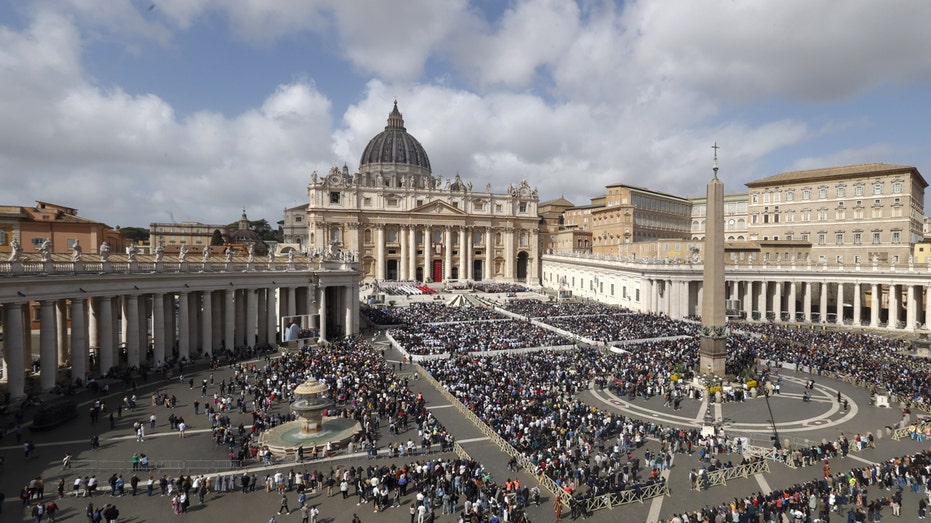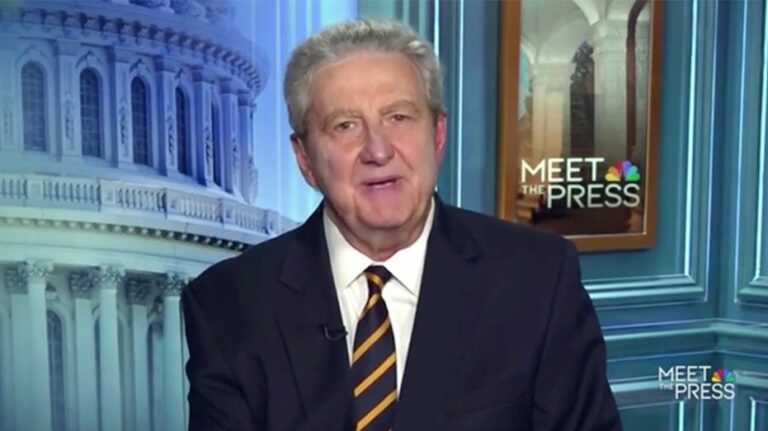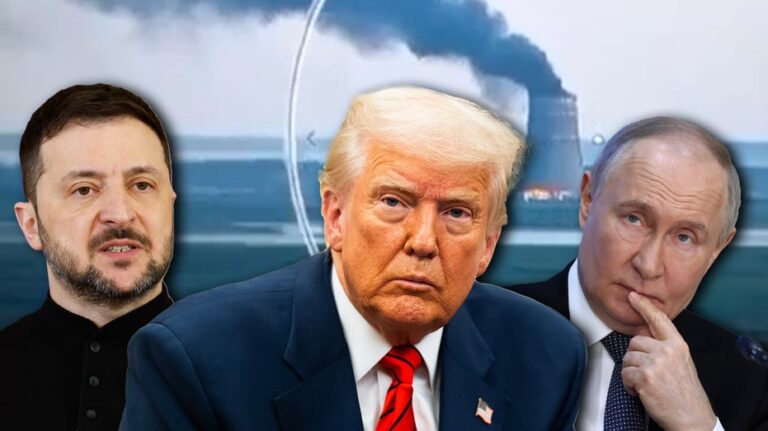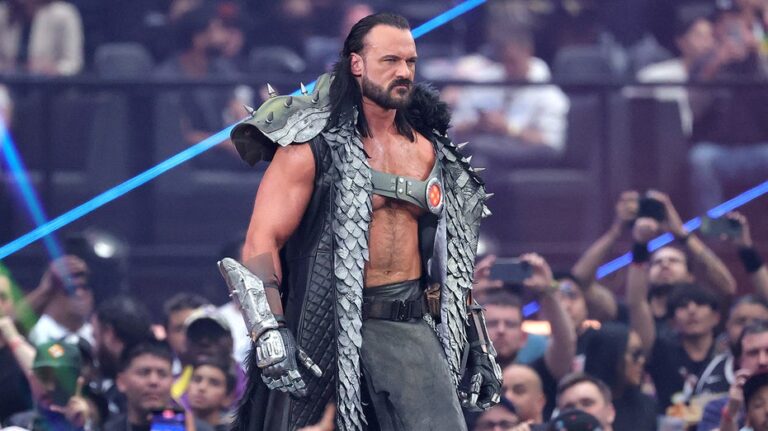
EXCLUSIVE – “Conclave” director Edward Berger’s new movie about the secretive papal election process could bring surprises and shocks to traditional Catholics.
Starring a powerhouse cast, including Ralph Fiennes as dean of the College of Cardinals, Stanley Tucci, John Lithgow and Lucian Msamati, “Conclave,” from Focus Features, is a fascinating, fictional behind-the-scenes look at how cardinals convene (and sometimes conspire) to select a new pope, based on Robert Harris’ 2016 novel of the same name. Isabella Rosellini also has a memorable turn as Sister Agnes, quietly observing the machinations of the cardinals throughout the film.
“And we see it in the beginning of the film: Stanley Tucci references a chess game, and I felt this movie is like a well-constructed architectural chess game where people are vying for the top job – the throne is vacant and people are getting out their daggers to conquer that throne,” director Edward Berger told Fox News Digital.
“That is automatically a very competitive situation and a very interesting and a very suspenseful situation,” he continued. “On top of it, you have a wonderfully engaging interior journey for Ralph Fiennes’s character, that is full of struggle and doubt that he’s trying to overcome. So, it’s a very complex script that keeps surprising you and has many surprises and twists for the audience.”
HOW IS A POPE CHOSEN? A CONCLAVE’S RITUAL, OATHS, AND SYMBOLS, EXPLAINED BY THE MASTER
Berger said he often sought the guidance of religious advisers in preparation for filming, including Francesco Bonomo, who helped fill in the blanks to explain the way people vote, what oaths are given, the prayers that are said, how you hold your hands and how you kneel, among other things.
“And we tried to get that as accurate as possible,” Berger said to Fox News Digital. “And for whatever is unknown, we filled it with our reality because, after all, it is a movie.”
“We went on a lot of location scouts in Rome and shot in Rome, and that influences the shoot every day,” he added. “You look out the window, and you see priests with briefcases going to work, you see nuns going to work, and you realize, ‘Oh, they’re all just people going to work, humans going to work, and it’s part of their daily lives.'”
The movie often humanizes the cardinals by showing them on their phones, vaping, breaking down in tears, etc., as they vie for the papacy in the wake of the most recent pope’s death.
“And that’s how we try to represent the Vatican, as human,” Berger said. “These are humans with problems, with doubts, with questions, with insecurities, with vices, with past sins and problems that they’re trying to overcome. So that’s how we try to show them, just as a human drama. In terms of research, we spoke to a lot of cardinals beforehand who gave us advice, but obviously, at some point, the doors close of the conclave and no one would tell you what’s going on.”
For those who haven’t read Harris’ “Conclave,” the ending of the movie may be a bit of a shock. Some Catholic bloggers have blasted the book as “anti-Catholic” or invoked the word “woke” when discovering how the papal election ultimately plays out and takes a progressive turn. Berger said the film was in no way meant to offend the church when asked how he thinks traditional Catholics will respond to the feature film.
“Well, we live in a world that has forgotten to discuss and disagree and to have a proper discourse,” Berger told Fox News Digital, later adding, “For me, I am open to people’s arguments and understand what they feel and how they think and to learn from it and to possibly revise my ideas and further my own attitude, further my own education.”
“And this is not a takedown of the church,” he said. “We’re portraying people as human, everyone is human and everyone is equal. I know from many cardinals and many Catholics that I’ve spoken to in Europe, they have said they are incredibly eager to see the movie and they’re going to just watch the movie and see it as what it is: a movie. This is not necessarily the truth, but it is a version of a movie.”
Some Catholic reviews of the film, such as one from Angelus News, noted that the ultra-conservative Italian Cardinal Tedesco is one of several cardinals portrayed as a “villain.” He voices his concern in one scene that there are too many Muslims in Europe and that the Church is too tolerant of other religions.
Some priests, meanwhile, are outright warning Catholics not to see the movie.
This film “is about eroding salvation, about mocking salvation, this is about discrediting the Holy Roman Catholic Church,” Fr. Jonathan Meyer of All Saints Parish in Guilford, Indiana, said in a YouTube video message, with some commenters calling the movie a “mockery” of the Church.
But the movie is a hit with mainstream critics, currently sitting at a 93 percent rating on Rotten Tomatoes. The film’s suspense factor and peak performances put it squarely in Oscar contention, they suggest.
“Conclave” also addresses an important question: How do men behave when presented with power? The answer, as suggested by the characters’ often cutthroat power plays, is not admirable.
“It’s a hugely important decision,” Berger said to Fox News Digital. “That position is extremely powerful – it’s probably one of the most powerful, if not the most powerful position in the world. That vacancy will create a vacuum of power, and that vacuum of power needs to be filled. In some people, that will elicit ambition – these are deeply squalid men and one of them is going to be that powerful person, and not everyone is immune to ambition. Sometimes ambition brings out the darkest sides in things, and sometimes ambition can be fruitful and positive. We are trying to make it a human drama that equates to any vacant position in the world.”
As in reality, the movie portrays how once the cardinals successfully choose the next pontiff, it is signaled by white smoke from the Sistine Chapel chimney.
With the U.S. presidential election looming, it was hard to ignore the timing of the film’s release.
“When you make a movie, you always want to make it of its time and you’re open to current events, and you want to make them part of the film,” Berger said of the film’s intriguing timing, calling his movie a “political drama.”
“We have been developing this film for eight years, so there’s certainly no intention, and you can’t plan for a movie to be released this year. It just happens to be the truth. But it happens to be the reality of what we live in now. When the reality is mirrored in a film, it makes it of its time, and I think it makes it interesting. Whether this movie takes place in the Vatican, in Washington, D.C., or a boardroom, it doesn’t really matter. I think it’s a universal truth that happens everywhere: when a position is vacant and needs to be filled, [it] brings out different political agendas or different agendas that are going to conflict with each other and that’s what we try to show in the film.”
CLICK HERE TO GET THE FOX NEWS APP
As for his own personal faith walk, Berger shared that he was raised Protestant, but was always interested in different faiths and their rituals, especially the Catholic Church, because it is “so mysterious and has so much mystique around it and so much, in a way, drama, theatricality, and that lends itself to a film.”
Should the Catholic Church evolve?
“There would be no tradition, identity, history or culture, so it’s a really important part of our cultures,” Berger responded to Fox News Digital. “Secondly, my personal opinion would be that I think it’s always good to go with the times that you don’t have to be afraid to go with the times and to open yourself up to different aspects of modernity, like a feminine presence, certainly wouldn’t be hurtful for any organization.”
“Conclave” is in theaters now.
EXCLUSIVE – “Conclave” director Edward Berger’s new movie about the secretive papal election process could bring surprises and shocks to traditional Catholics.
Starring a powerhouse cast, including Ralph Fiennes as dean of the College of Cardinals, Stanley Tucci, John Lithgow and Lucian Msamati, “Conclave,” from Focus Features, is a fascinating, fictional behind-the-scenes look at how cardinals convene (and sometimes conspire) to select a new pope, based on Robert Harris’ 2016 novel of the same name. Isabella Rosellini also has a memorable turn as Sister Agnes, quietly observing the machinations of the cardinals throughout the film.
“And we see it in the beginning of the film: Stanley Tucci references a chess game, and I felt this movie is like a well-constructed architectural chess game where people are vying for the top job – the throne is vacant and people are getting out their daggers to conquer that throne,” director Edward Berger told Fox News Digital.
“That is automatically a very competitive situation and a very interesting and a very suspenseful situation,” he continued. “On top of it, you have a wonderfully engaging interior journey for Ralph Fiennes’s character, that is full of struggle and doubt that he’s trying to overcome. So, it’s a very complex script that keeps surprising you and has many surprises and twists for the audience.”
HOW IS A POPE CHOSEN? A CONCLAVE’S RITUAL, OATHS, AND SYMBOLS, EXPLAINED BY THE MASTER
Berger said he often sought the guidance of religious advisers in preparation for filming, including Francesco Bonomo, who helped fill in the blanks to explain the way people vote, what oaths are given, the prayers that are said, how you hold your hands and how you kneel, among other things.
“And we tried to get that as accurate as possible,” Berger said to Fox News Digital. “And for whatever is unknown, we filled it with our reality because, after all, it is a movie.”
“We went on a lot of location scouts in Rome and shot in Rome, and that influences the shoot every day,” he added. “You look out the window, and you see priests with briefcases going to work, you see nuns going to work, and you realize, ‘Oh, they’re all just people going to work, humans going to work, and it’s part of their daily lives.'”
The movie often humanizes the cardinals by showing them on their phones, vaping, breaking down in tears, etc., as they vie for the papacy in the wake of the most recent pope’s death.
“And that’s how we try to represent the Vatican, as human,” Berger said. “These are humans with problems, with doubts, with questions, with insecurities, with vices, with past sins and problems that they’re trying to overcome. So that’s how we try to show them, just as a human drama. In terms of research, we spoke to a lot of cardinals beforehand who gave us advice, but obviously, at some point, the doors close of the conclave and no one would tell you what’s going on.”
For those who haven’t read Harris’ “Conclave,” the ending of the movie may be a bit of a shock. Some Catholic bloggers have blasted the book as “anti-Catholic” or invoked the word “woke” when discovering how the papal election ultimately plays out and takes a progressive turn. Berger said the film was in no way meant to offend the church when asked how he thinks traditional Catholics will respond to the feature film.
“Well, we live in a world that has forgotten to discuss and disagree and to have a proper discourse,” Berger told Fox News Digital, later adding, “For me, I am open to people’s arguments and understand what they feel and how they think and to learn from it and to possibly revise my ideas and further my own attitude, further my own education.”
“And this is not a takedown of the church,” he said. “We’re portraying people as human, everyone is human and everyone is equal. I know from many cardinals and many Catholics that I’ve spoken to in Europe, they have said they are incredibly eager to see the movie and they’re going to just watch the movie and see it as what it is: a movie. This is not necessarily the truth, but it is a version of a movie.”
Some Catholic reviews of the film, such as one from Angelus News, noted that the ultra-conservative Italian Cardinal Tedesco is one of several cardinals portrayed as a “villain.” He voices his concern in one scene that there are too many Muslims in Europe and that the Church is too tolerant of other religions.
Some priests, meanwhile, are outright warning Catholics not to see the movie.
This film “is about eroding salvation, about mocking salvation, this is about discrediting the Holy Roman Catholic Church,” Fr. Jonathan Meyer of All Saints Parish in Guilford, Indiana, said in a YouTube video message, with some commenters calling the movie a “mockery” of the Church.
But the movie is a hit with mainstream critics, currently sitting at a 93 percent rating on Rotten Tomatoes. The film’s suspense factor and peak performances put it squarely in Oscar contention, they suggest.
“Conclave” also addresses an important question: How do men behave when presented with power? The answer, as suggested by the characters’ often cutthroat power plays, is not admirable.
“It’s a hugely important decision,” Berger said to Fox News Digital. “That position is extremely powerful – it’s probably one of the most powerful, if not the most powerful position in the world. That vacancy will create a vacuum of power, and that vacuum of power needs to be filled. In some people, that will elicit ambition – these are deeply squalid men and one of them is going to be that powerful person, and not everyone is immune to ambition. Sometimes ambition brings out the darkest sides in things, and sometimes ambition can be fruitful and positive. We are trying to make it a human drama that equates to any vacant position in the world.”
As in reality, the movie portrays how once the cardinals successfully choose the next pontiff, it is signaled by white smoke from the Sistine Chapel chimney.
With the U.S. presidential election looming, it was hard to ignore the timing of the film’s release.
“When you make a movie, you always want to make it of its time and you’re open to current events, and you want to make them part of the film,” Berger said of the film’s intriguing timing, calling his movie a “political drama.”
“We have been developing this film for eight years, so there’s certainly no intention, and you can’t plan for a movie to be released this year. It just happens to be the truth. But it happens to be the reality of what we live in now. When the reality is mirrored in a film, it makes it of its time, and I think it makes it interesting. Whether this movie takes place in the Vatican, in Washington, D.C., or a boardroom, it doesn’t really matter. I think it’s a universal truth that happens everywhere: when a position is vacant and needs to be filled, [it] brings out different political agendas or different agendas that are going to conflict with each other and that’s what we try to show in the film.”
CLICK HERE TO GET THE FOX NEWS APP
As for his own personal faith walk, Berger shared that he was raised Protestant, but was always interested in different faiths and their rituals, especially the Catholic Church, because it is “so mysterious and has so much mystique around it and so much, in a way, drama, theatricality, and that lends itself to a film.”
Should the Catholic Church evolve?
“There would be no tradition, identity, history or culture, so it’s a really important part of our cultures,” Berger responded to Fox News Digital. “Secondly, my personal opinion would be that I think it’s always good to go with the times that you don’t have to be afraid to go with the times and to open yourself up to different aspects of modernity, like a feminine presence, certainly wouldn’t be hurtful for any organization.”
“Conclave” is in theaters now.




